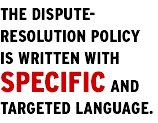| |||||||||

Agency could be coming for your domain name
 An international organization has proposed rules under which established Web sites could lose the right to use names with common geographical terms, such as "Bordeaux." An international organization has proposed rules under which established Web sites could lose the right to use names with common geographical terms, such as "Bordeaux." The World Intellectual Property Organization (WIPO), an agency of the United Nations, recently opened a comment period on its proposal. The current draft of the proposal suggests revoking the domain names of Web sites that conflict with "geographical terms," individuals' personal names and "tradenames." Tradenames are broader than trademarks and do not require trademark registration. The development is significant because the WIPO first proposed a domain-name dispute resolution policy in April of last year. That proposal, reduced somewhat in scope, was adopted last December by the Internet Corporation for Assigned Names and Numbers (ICANN), the Net's coordinating body. WIPO subsequently became one of four arbitration bodies approved by ICANN to arbitrate cases. The dispute-resolution policy is written with specific and targeted language. It applies only when a domain name has been used in "bad faith." ICANN defines bad faith narrowly to apply only to "cybersquatters"--those who register multiple names merely to resell them to holders of registered trademarks. Arbitrators in many cases, however, have greatly expanded the policy. Domain names have been taken from some legitimate businesses and nonprofit organizations that never attempted to resell their names.
For example, a WIPO arbitration panel last April announced a decision to take Crew.com, a generic name, from a small-business owner and transfer it to J. Crew International, the sportswear manufacturer. Considering all cases decided between Jan. 1 and June 30, 2000, the WIPO transferred domain names from defendants to plaintiffs in 84 percent of all cases. A competing body, eResolution, found for the plaintiffs only 47 percent of the time. Under ICANN's rules, plaintiffs are allowed to select the arbitration body they prefer. The WIPO quickly increased its market share, receiving the majority of all cases by the second quarter of 2000. Here are the definitions of some of the factors that could cause a Web site to lose its name under WIPO's proposal: • Geographical terms. This includes "a geographical place of origin of a product." The example the WIPO gives is "Florida oranges." But many others come to mind such as "Maryland crab," "German beer" and so forth. • Personal names. Alternatives include applying the new rules to "all names," only the "names of famous persons," or the "names of government officials or other persons in the public eye." Perhaps as a precursor to this new policy, a WIPO decision in June transferred the domain names Montyroberts.org and Montyroberts.net to horse trainer Monty Roberts. The WIPO ordered the transfers, although Roberts acknowledged that he held no registered trademark on his name at the time. • Tradenames. This is perhaps the broadest category. Trademarks must identify specific products or services. But tradenames "distinguish a business," according to the WIPO proposal, "independently of the goods or services that the business offers." In addition, "tradenames receive protection," the WIPO says, "without the obligation of a filing or registration." For this reason, a company you had never heard of might have a legal basis to take away your Web site's address based on the concept of tradenames. Already, arbitration cases have ranged far beyond exact matches of trademarked words. The proposed rules may create a new class of phrases that can threaten the existence of established Web sites. At this point, the WIPO is seeking comments, which must be received by Aug. 15, only on the scope of the proposal. The organization says it will publish a new draft Sept. 8, with comments on that document open until Nov. 17. In the meantime, you might think twice before starting a Web site named BordeauxWine.com. Consumer advocate Brian Livingston appears at CNET News.com every Friday. Do you know of a problem affecting consumers? Send info to tips@BrianLivingston.com. He'll send you a book of high-tech secrets free if you're the first to submit a tip he prints. who's speaking? |
|
|||||||||||||||||||||||
|
Send us news tips | Contact Us | Corrections | Privacy Policy |
|

